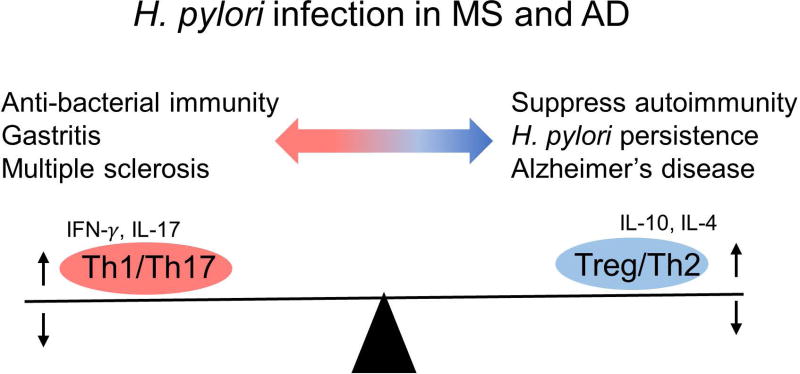Figure 3.
H. pylori infection in multiple sclerosis (MS) and Alzheimer’s disease (AD). Chronic H. pylori infection changes the T helper (Th) cell subset balance toward Treg/Th2 responses, suppressing MS and gastritis, both of which are mediated by pro-inflammatory Th1/Th17 responses. On the other hand, increased Treg/Th2 responses can suppress anti-bacterial Th1/Th17 immunity, which leads to persistent H. pylori infection, resulting in BBB dysfunction and AD progression (see Fig. 2).

